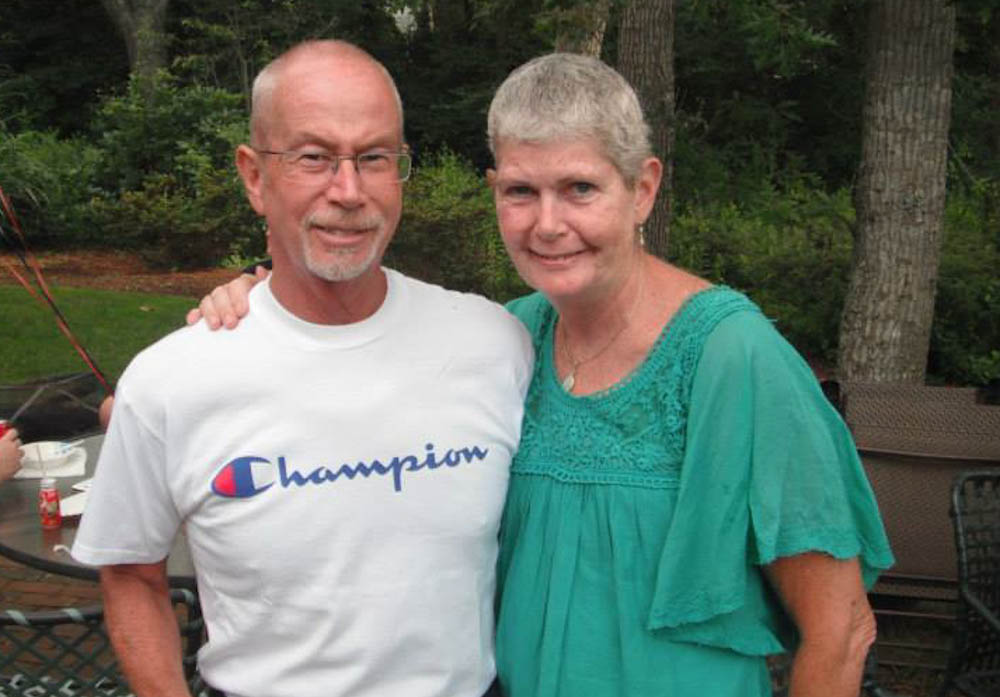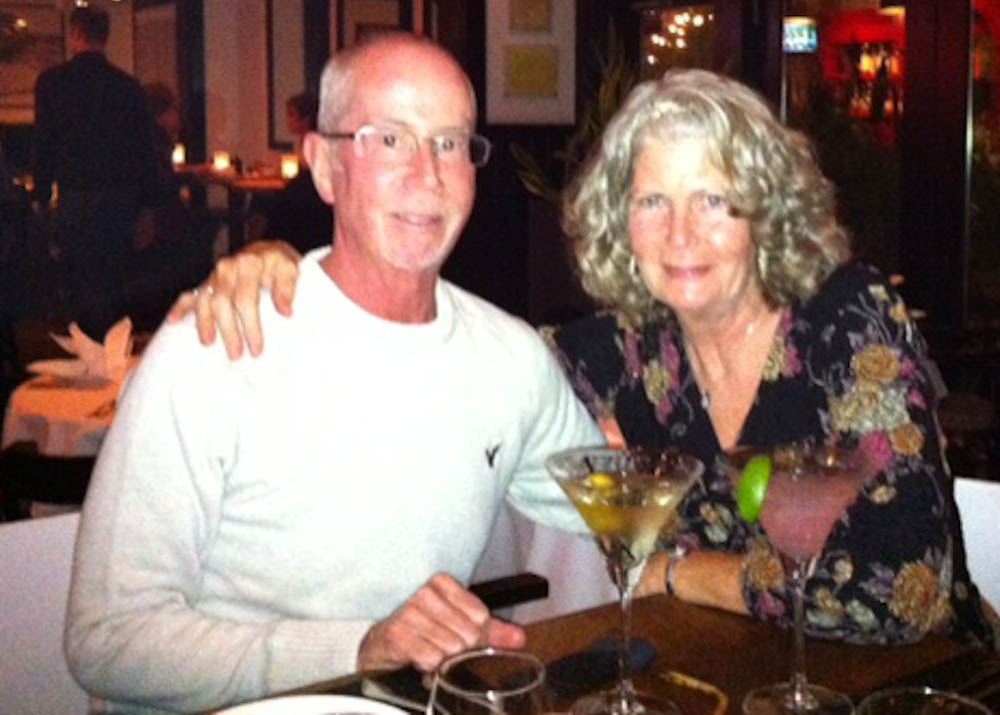By Bob Ferris

I thought I could handle things myself when my wife, Ruth, got cancer – and for a while I did.
Six years ago, at age 52, Ruth was diagnosed with stage III ovarian cancer. She has a family history of ovarian and endometrial cancers, and was always good about getting regular screenings, but you’re never ready for news like that. Ruth had a hysterectomy, they removed the tumor, and then she had four months of intensive chemotherapy at the Susan F. Smith Center for Women’s Cancers at Dana-Farber. I became her primary caregiver and driver.
The treatment was tough. There were six rounds of three-day chemo treatments, but she was strong-willed and walked laps around the unit with her IV pole. Although we lived about an hour away from Dana-Farber, our kids were all grown and out of the house and I’m self-employed, so when necessary I planned my work schedule around the Boston area. We got through it all.
Then in December 2012, two years after her first diagnosis, we found out Ruth had breast cancer. It was a small tumor, but it was a triple-negative tumor – one of the most aggressive types. She had the option of getting a lumpectomy with radiation and chemo, but Ruth’s attitude was, “I’m pretty good at making tumors, so I don’t want to leave breeding grounds for this to spread.” She decided to get a double mastectomy.
Read more:
As the surgery neared, I started really struggling emotionally. You say to yourself, “What’s next? What’s the next shoe to drop?” I didn’t share too much with Ruth, but she could tell something was wrong. When she read about a monthly family caregivers support group led by a social worker at Dana-Farber, she encouraged me to go. I told her it wasn’t my thing, but that I’d check it out.
That first meeting, surrounded by men and women of all ages whose wives, husbands, or other loved ones had cancer, I realized I wasn’t alone. As people shared their stories, I saw that even though all were dealing with different cancer types at different stages, their lives had been affected in ways I could relate. They worried about recurrences, or second cancers, and had family members and friends who couldn’t understand what they were going through. For me, there was an almost immediate sense of belonging – and that I was not alone.
Patients are asked to refrain from coming to the group, so caregivers feel more open discussing their feelings and fears. Not having patients there means you can safely vent your frustrations; if you feel like saying you’re bleeping mad at the world, that’s OK. I’m quite outspoken.
Some members of the group have loved ones who are doing well, and eventually they may stop coming to meetings. Others, however, have loved ones who are not doing well. At the last meeting there were two guys, longtime regulars like me, whose wives passed away within a few weeks of each other in January. Their caregiver role had ended, but they came to one more meeting for closure.

There was a point about two years ago when Ruth was doing well, and I thought, “Do I really need to continue coming?” But then my son, who had been struggling for many years with a chronic asthmatic condition, passed away after a severe asthma attack. Suddenly the caregiver role reversed, and Ruth and my family were worrying about me. I needed support from people who understood these feelings. My issue didn’t really relate to cancer caregiving, but I brought it up once or twice to the support group and it was very helpful.
Today, Ruth and I are living our lives a normal way. She has semi-annual ovarian cancer and breast screenings at Dana-Farber, and her disease is under control. Genetic testing recently revealed that she should also be screened regularly for pancreatic cancer and melanoma, so that is now added to her overall monitoring plan.
We fully realize that with multiple cancers, “when” becomes more of a reality than “if,” and there are no “woulda-coulda-shoulda’s” in going forward with life. We don’t look back, only forward.

Thank you so much, Bob, for sharing your story. Being the caregiver is obviously not as hard as having cancer; but it can still be very hard. You helped me know that I am not alone, either. Thank you.